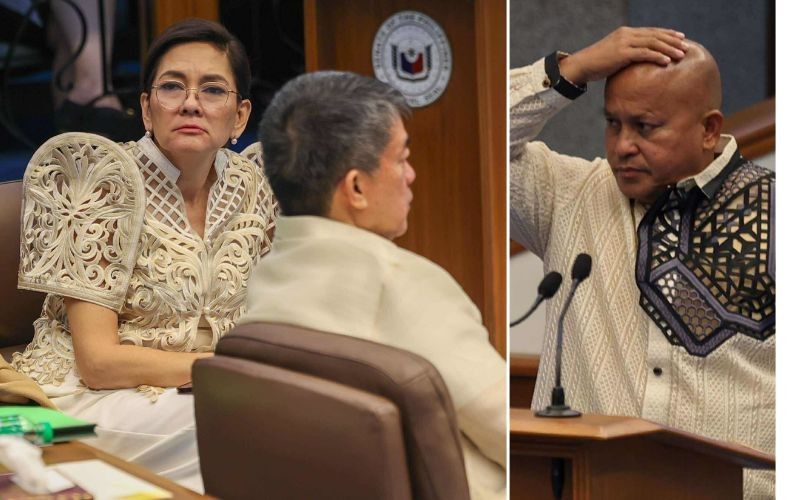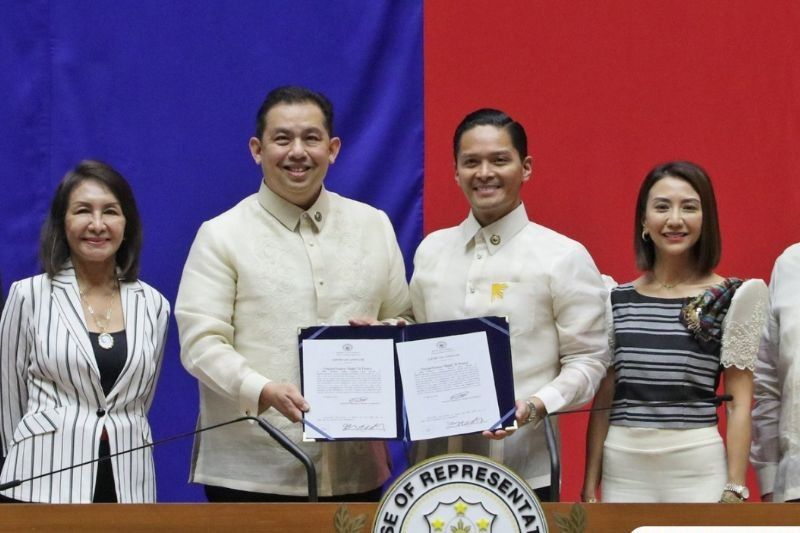
Upgrade to High-Speed Internet for only ₱1499/month!
Enjoy up to 100 Mbps fiber broadband, perfect for browsing, streaming, and gaming.
Visit Suniway.ph to learn
Cristina Chi - Philstar.com
April 11, 2025 | 12:06pm
MANILA, Philippines — The licensure exam for teachers is set to undergo its biggest change in three decades as the government introduces separate tests for different teaching specializations.
The Commission on Higher Education (CHED) and Professional Regulation Commission (PRC) signed a joint memorandum circular on Thursday, April 10, that creates dedicated licensure exams for the different subjects in elementary and secondary education — directly matching tests to teacher training for the first time since the examination began in 1996.
The new system, which will be implemented in phases starting September, creates separate examinations for elementary education and secondary education with at least ten specializations:
English, Filipino, Mathematics, Science, Social Studies, Values Education, Technology and Livelihood Education, Technical-Vocational Teacher Education, Physical Education, and Culture and Arts Education.
Those who aim to become teachers in the fields of early childhood and special needs education will also similarly take a different licensure exam.
Each licensure exam will assess three areas: general education, professional education, and the specific field of specialization that matches the teacher's training.
President Ferdinand Marcos Jr. — who witnessed the signing of the memorandum — said the reform is meant to ensure that "every Filipino teacher is equipped with the skills and tools needed to teach with depth, with clarity, and with purpose."
“In the changes we will implement, we can better tailor education to the needs of each learner, especially those with what are called special needs… Because real progress means leaving no one behind,” Marcos said in mixed English and Filipino.
PRC Chairperson Charito Zamora said that the introduction of the specialized exams for teachers "provides an additional layer of quality assurance, ensuring that the Department of Education can effectively seek out not just any licensed individual, but specifically those who are rightly qualified."
Addressing teacher-subject mismatch. The long-awaited reform to the conduct of the teacher licensure exam hands a win to education advocates and officials who have long pushed for aligning teacher assessment with the competencies needed to teach each field.
"At the Teacher Education Council, we welcome this development as it means policies are adapting to the demands of the time," said Teacher Education Council Executive Director Jennie Jocson. "This [joint memorandum circular] has the potential of addressing drawbacks in teacher supply, particularly in early childhood education and technical-vocational education in senior high schools."
Education Secretary Sonny Angara said the reform will direct impacts education quality. "Our schools are only as good as our teachers. They are the heart and soul of our system," he said during the signing ceremony.
Both Sen. Sherwin Gatchalian, chair of the Senate basic education panel, and Rep. Roman Romulo (Pasig City), chair of the House basic education panel, pointed out the reform's potential in terms of reducing the mismatch between educators' assigned teaching load and the actual field they studied in college.
"We need to make sure that the assessment of our aspiring teachers reflects their specializations," Gatchalian said. "Implementing specialized versions of the LEPT is one step to address teacher-subject mismatch, which will eventually help us improve the quality of instruction in our schools."
Need for specialized exams. The current one-size-fits-all testing system has generally failed those who seek to take up specialized teaching fields.
Data from the March 2024 licensure exam for teachers shows physical education majors faced a dismal 34.1% passing rate, while technical-vocational teacher education graduates fared even worse at 33.2% — both far below the national average of 62.9%, according to EDCOM 2.
Early childhood education specialists, forced to take exams designed for general elementary teachers, achieved only a 42.1% passing rate.
This exam-curriculum mismatch has created classrooms where teachers lack subject expertise. EDCOM 2 previously found that over half, or at least 62,% of high school teachers were assigned to subjects they never majored in.
A 2023 study by the private sector-led Philippine Business for Education found that over the past 12 years, at least 56% of teacher education institutions have performed below average in licensure exams.

 1 month ago
22
1 month ago
22



